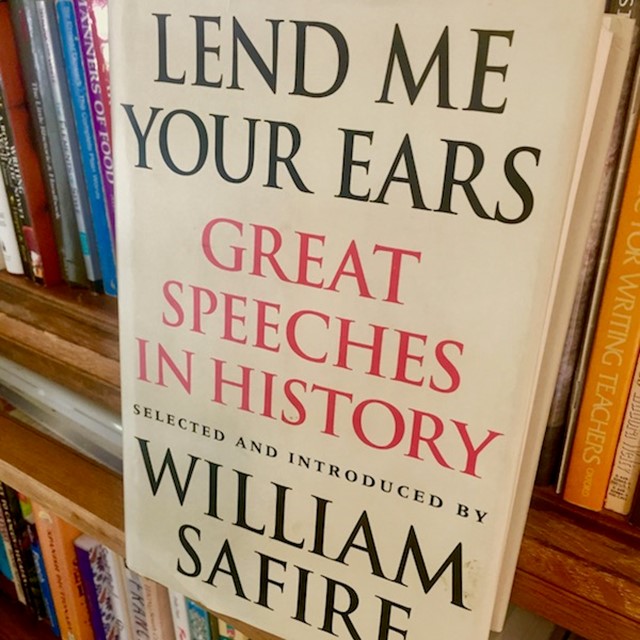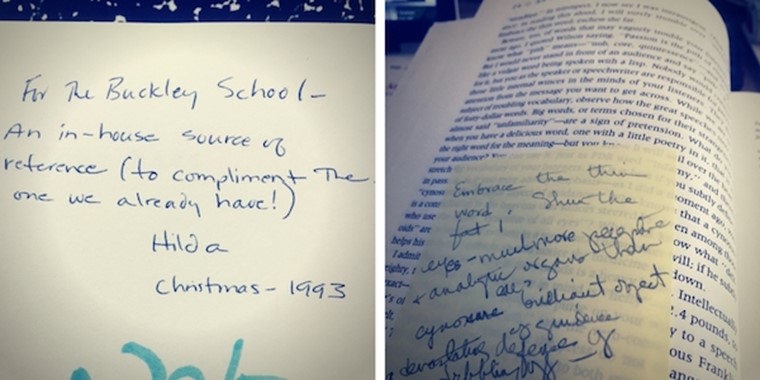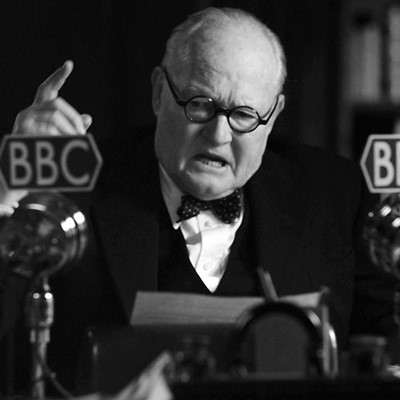
A favorite question in every class we lead is this: What public speaking books do you suggest we read? Our shelves are loaded with choices. Every month we'll be featuring a pick from new books we've come across and old favorites we go back to again and again.
"The study of one-liners is engaging if you like the smorgasbord or quick review, but here we offer the meat and potatoes of oratory - oral communication in context, human persuasion in action."
– Willam Safire in the introduction to his anthology of speeches
Lend me Your Ears: Great Speeches in History
SELECTED AND INTRODUCED BY WILLIAM SAFIRE
Some of us enjoy reading cookbooks. Then there are Buckley School coaches, who read speeches for pleasure. And for Buckley coach Karen Kalutz, one of the best books for participating in the second is this one assembled by William Safire.
She says she frequently hauls the school's copy off our library shelves and opens to a random speech for inspiration. Our volume weighs 2.4 pounds (according to Safire), so it's a physical workout, too.
Safire, who died in 2009, was long admired for his column "On Language" in The New York Times Magazine. He was also a speechwriter for President Richard Nixon and Vice President Spiro Agnew. Safire is credited with penning Agnew's famous phrase "nattering nabobs of negativism," words we use to introduce members of the Negative Team in our Buckley School debates to this day.
 Our copy was a Christmas gift from a Buckley school coach. Right, you see one of Karen's notes.
Our copy was a Christmas gift from a Buckley school coach. Right, you see one of Karen's notes.
Our edition of Lend Me Your Ears was published in 1992. It's been updated and expanded since. The book is organized by types of speeches, ranging from war speeches to lectures to inspirational and even commencement speeches of note. Before each speech, Safire provides background and context, and in some cases, his analysis of how the speech works.
In his introduction to the collection, he also provides a ten step guide on the elements required for a great speech, plus a secret eleventh step. No spoiler here--we'll leave #11 for you to discover.






